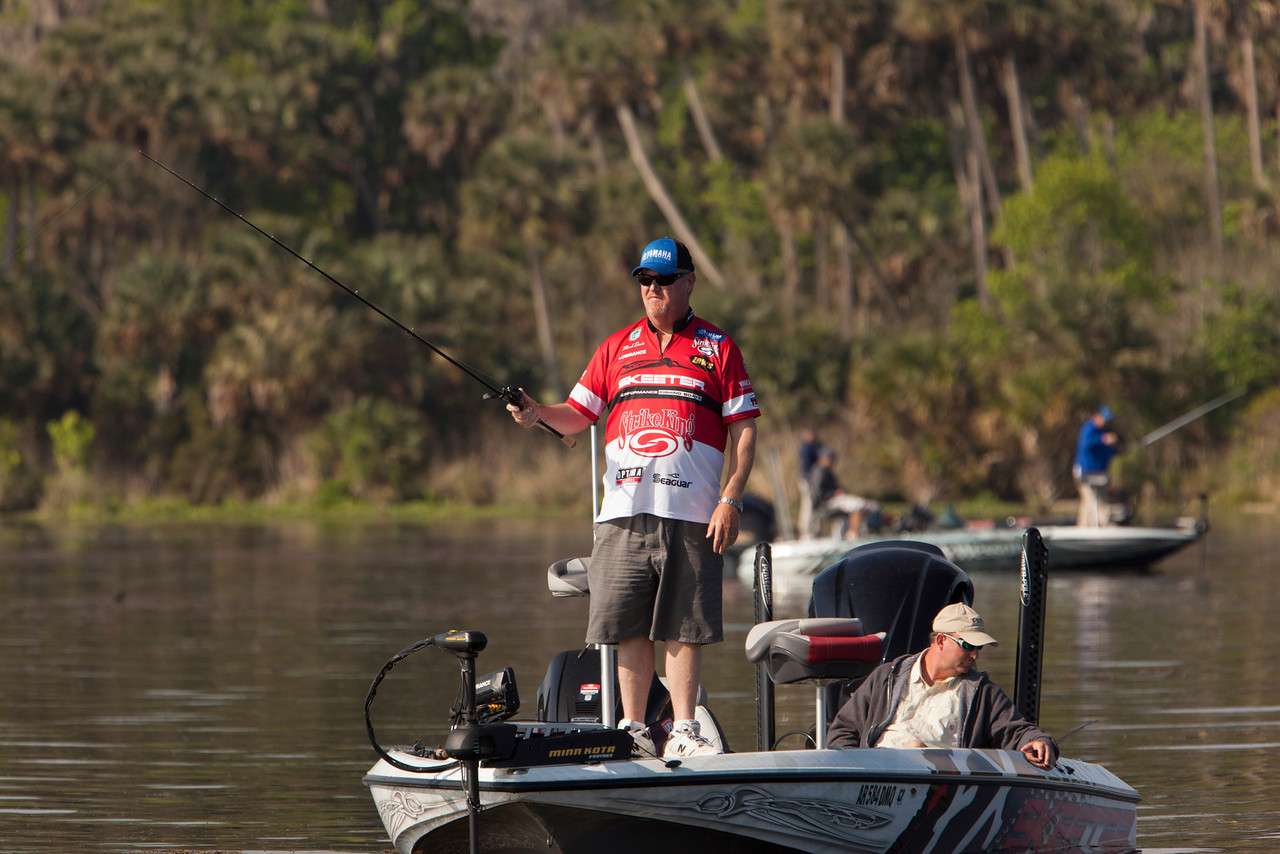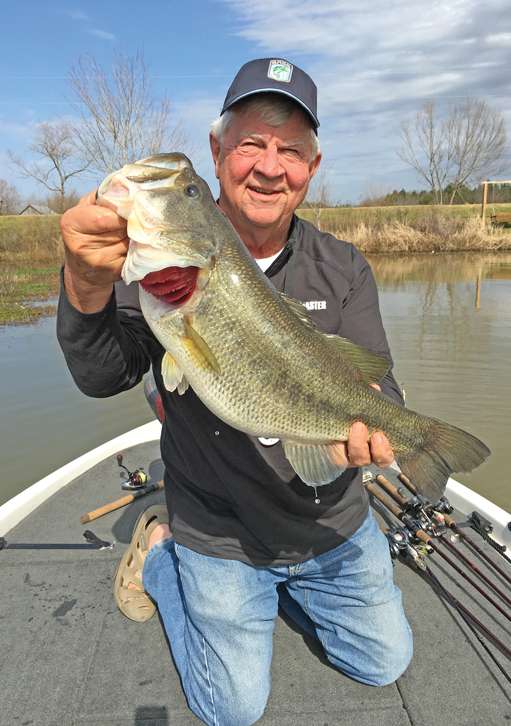
Attend a Bassmaster Elite Series weigh-in, and you’re bound to hear common refrains, especially on the “50-cut day,” when all but the money winners are sent packing.
Most will thank their sponsors, many will praise the local fishery and community and a few will comment on the “level of competition” today.
The implication is that “up-and-coming” pros are so talented that the veterans have to be on their game every minute of every day. And it’s true. Even the Elite “rookies” have honed their skills before qualifying for the premier circuit.
The older pros may talk about it, but they don’t want to be reminded of it.
After Mark Davis, the pride of Mount Ida, Ark., finished 43rd out of 55 in the 2014 GEICO Bassmaster Classic presented by Diet Mountain Dew and GoPro, he heard it from the writers.
“Several members of the media commented to me about how good the competition is, especially the younger ones,” Davis said. “They more or less felt that the tide is turning, and the older generation — the veteran guys like me — our time is past,” he said. “I don’t agree with that, obviously.”
In 1980, someone suggested to Roland Martin that he might be over the hill. He promptly won three Bassmaster tournaments in a row. In the same way, Davis has been spurred to success by the “level of competition” comments.
He’s off to his best start ever, finishing in the Top 4 in all four Elites so far this year. He’s leading the Toyota Bassmaster Angler of the Year race by 42 points, and he’s setting the pace on some of his least favorite fisheries.
“I have a love/hate relationship with Seminole, and the St. Johns … I really never liked fishing the St. Johns River,” Davis said. Until this year.
His renewed determination and self-confidence led him to make all the right decisions at both events. He made up his mind he was going to outfish the up-and-comers as well as the old-timers.
“Fishing is different than other sports,” he explained. “We don’t have a coach to give us a pep talk. You have to find a way to motivate yourself. For me to stay in the sport and have sponsors and have success, I knew I had to step it up, to find a way to burn it up like I did at times.”
He has definitely set the trail ablaze in the past. Davis won Angler of the Year three times (1995, 1998 and 2001) and was the first to win the Bassmaster Classic and AOY in the same year (1995).
He readily acknowledges that winning is “tougher now than it’s ever been. Way back when, I remember that catching 15 pounds a day all year long was great, but that doesn’t cut it anymore.”
Actually, when Davis was winning Angler of the Year titles, he was weighing in an average of 10 and 11 pounds of bass a day, but that was when the field was 150 and everyone fished all four days. The latest two title holders, Aaron Martens and Brent Chapman, averaged between 15 and 16 pounds per day.
Davis is ahead of that pace on what is easily the best run of his 27-year career. One key is in his preparation for his tournaments. He’s felt more ready than ever.
“You just do better when you have your ducks in a row,” he said.
Another element of his success is confidence in his skills, his decision-making, his ability to outfish all comers.
“It’s easy to doubt yourself,” he explained. “Fishing is so mental. So much of it is confidence. The things we have to do to maintain confidence are different, but we all have to have it.”
There’s a distinction between self-confidence and self-reliance, Davis is quick to point out.
Printed on his tournament jersey is a Bible reference, Proverbs 3:5-6, which advises believers to, “Trust in the Lord with all your heart and lean not on your own understanding …”
“You’d think a guy with that scripture on his jersey would be the last one to say, ‘I can do this on my own.’ That was me,” he said. “When I try to do things on my own and not seek His will, I really struggle. When I seek His will, things fall into place.” After a pause, he added:
“More than anything we’ve talked about today, that’s the biggest thing that’s led to my coming back.”
This originally appeared in the May issue of B.A.S.S. Times.

